Episodes
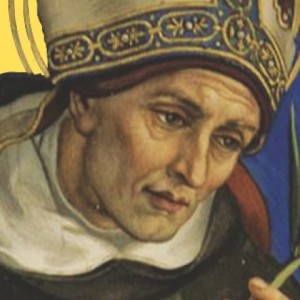
Monday Nov 18, 2019
Episode 086 - Indianapolis Gold Mass
Monday Nov 18, 2019
Monday Nov 18, 2019
Today's episode is a rundown of the Indianapolis Gold Mass, followed by a short selection of readings from Scripture and a bit about Albert the Great specifically, with a scrap of meditation on the vocation of a scientist.
- Gold Masses for those in the natural sciences were celebrated in a dozen cities on Nov. 15, the feast day of St. Albert the Great, who is the patron saint of natural scientists. One of those Masses, as described by TSSM co-host Dr. Paul Giesting, took place in Saints Peter and Paul Cathedral in the Archdiocese of Indianapolis.
- The Society of Catholic Scientists is the pre-eminent sponsor/supporter of these Gold Masses as part of an initiative established relatively recently. The Society’s website contains a page where the most comprehensive listing of planned Gold Masses is compiled.
- What is a Gold Mass? The SCS provides this information.
- Here are details of the life of St. Albert the Great.
- The Criterion, newspaper of the Indianapolis Archdiocese, is expected to publish an article about the Nov. 15 Gold Mass in early December.

Monday Nov 04, 2019
Episode 084 - Gold Masses, Politics As Religion, Jordan Peterson
Monday Nov 04, 2019
Monday Nov 04, 2019
- This week Bill prods Paul along as he recovers from a massive proposal hangover. This week's episode is the end of a much longer conversation that may or may not otherwise remain on the cutting room floor about Jordan Peterson and other topics as far afield as Homestar Runner.
- We run down the list of Gold Masses that have been publicly announced to take place this coming month--featuring such highlights as a Mass celebrated by the Bishop of Bismarck, ND and a talk at Benedictine University in Lisle, IL on "The Mystery of Faith: from the Gold Mass to Gravity Waves."
- From there, we segue to discussing how in the contemporary world people try to fill to gaping hole left by religion with politics even more than science, and we finish with Bill's comments on one of Jordan Peterson's messages in an interview with Patrick Coffin on the essential role that living our own lives well plays in changing the world.
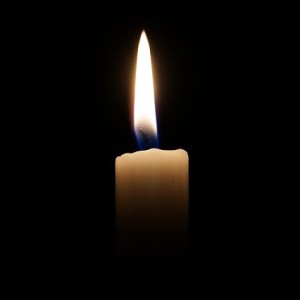
Friday Nov 01, 2019
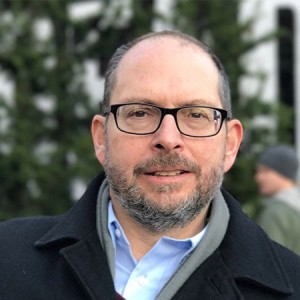
Monday Sep 30, 2019
Episode 079 - Conversion and Witness with Jonathan Lunine
Monday Sep 30, 2019
Monday Sep 30, 2019
- Dr. Jonathan Lunine is the David C. Duncan Professor in the Physical Science and chair of the Department of Astronomy at Cornell University. He is also the vice president and a co-founder of the Society of Catholic Scientists.
- Here is information about the Vatican Observatory. It was one of the starting points for Lunine’s exploration of the compatibility between science and the Catholic faith.
- He met Stephen Barr in 2014, and this led to their discussions about establishing the Society of Catholic Scientists. Here is a talk given by Barr at the University of Chicago.
- Here is a talk by Lunine about Georges Lemaitre, a Catholic priest recognized as an originator of the Big Bang theory. In our conversation, Lunine described a presentation on Lemaitre that he gave at Cornell as a kind of “coming-out party” for him as a Catholic convert with his own story to tell. He has addressed Catholic students with the advice to share one’s faith story but to be judicious, following the practice of St. Paul, who adapted his messages to his audiences. A recommendation for discussions of faith: “There’s a time and a place for everything.”
- Lunine mentioned Elaine Ecklund, who has studied what scientists think about the American culture’s understanding that science and religion are incompatible. Harvard physicist Lisa Randall, who has said belief in God is incompatible with science, is an example of the resistance to faith that many scientists encounter in academia, Lunine said. Our culture gives much credibility to scientists, who owe it to their audiences to be clear about when they are speaking as individuals rather than scholarly experts. Lunine also mentioned the Thomistic Institute, which has a chapter on the Cornell campus founded by a graduate student.
- Part of the difficulty in the dialogue between science and religion is a popular but erroneous view that the Bible was intended to be a book of science. Here is a discussion of St. Augustine’s examination of this claim. Another challenge, Lunine said, is that our children generally grow up without a substantive education in religion.
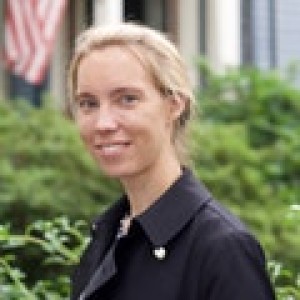
Monday Aug 26, 2019
Episode 074 - Karin Oberg
Monday Aug 26, 2019
Monday Aug 26, 2019
- Karin Öberg is Professor of Astronomy and Director of Undergraduate Studies in the Department of Astronomy at Harvard University. Planetary formation—or stars and stellar evolution—is a focus of her research. She is a member of the Board of Directors of the Society of Catholic Scientists. See her CV here.
- Öberg spoke of her first academic route to astronomy being via chemistry rather than physics. She discovered the field of astrochemistry while an undergraduate at the California Institute of Technology. She earned her PhD in astrophysics at Leiden University in the Netherlands.
- She joined the faculty at the University of Virginia in 2012. One year, later, she received an assistant professorship at the Harvard-Smithsonian Center for Astrophysics, which is located at Harvard.
- Öberg was baptized as a Christian in her youth but then drew away from the faith. She said she never adopted an atheistic, materialistic perspective largely because of two key principles she holds to: moral realism and one’s personal agency as an individual making free decisions.
- During her college years, Christianity remained a living question for her partly because of the friends with whom she associated. Books influenced her deeply: Lord of the Rings, The Screwtape Letters, The Abolition of Man, Mere Christianity, and Orthodoxy. This combination brought her back to Christianity, first in the Anglican Church.
- After joining the faculty at Harvard, she completed a two-year RCIA program at St Paul’s Parish in Harvard Square to join the Catholic Church. One concern she felt in her new Catholic experiences, she said, was that the statements in the Mass did not always seem to line up with personal beliefs articulated by individuals.
- Öberg said she has not personally experienced any bias against her Catholicism at Harvard, and indeed she has felt welcomed in the astronomy community and among other colleagues. She helps to mentor some Catholic and Christian students. Some Catholic colleagues have experienced prejudice, in the biology department, for example. She said one factor is that her research does not touch on any controversial subjects. But she wants to let students know they should not be anxious about living out their Catholic faith because of fear of prejudiced encounters. Overall, being open about one’s faith has a net positive effect on oneself and others, despite occasional crosses one might have to bear.

Monday Aug 19, 2019
Episode 073 – Jonathan Lunine
Monday Aug 19, 2019
Monday Aug 19, 2019
In this episode we have Jonathan Lunine on the podcast, this time talking to him about his own spiritual journey from Judaism to Catholic Christianity, and from the secular surface of life as a scientist to a deeper life where the beauty of science is one prominent part of a larger whole of human experience. We also get the chance to discuss some of his work in studying the planets during the era when they changed from objects seen through a telescope to worlds we can map and even sample and bring back to our laboratories.
- Jonathan Lunine, a planetary scientist at Cornell University, is a member of the board of the Society of Catholic Scientists. He spoke of the influence of reading Carl Sagan’s The Cosmic Connection and receiving Sagan’s advice for pursuing a career in astronomy.
- Dr. Lunine has been on the scientific teams leading several missions of space exploration, including Cassini and, now, the James Webb Space Telescope.
- He described his early spiritual journey, seeing how science and religion could be intertwined. The journey took him from Jewish family roots to a Methodist church and then to Catholicism. He spoke of being impressed by the connection between the Catholic faith and its Jewish roots.
- Astronomers have been excited to learn of the abundance of planets to be found in our galaxy. As Dr. Lunine pointed out, thanks to initiatives like the New Horizons spacecraft, we have turned our “cosmic backyard” into a place where we can study an enormous variety of geology “and even, potentially, biology.”
- He expressed gratitude for astronomers and others who became role models embracing the compatibility between science and faith. A key figure, about whom he has made presentations, is the Belgian priest Georges LeMaitre, known as the father of the big bang theory.
This was one of our most enjoyable conversations, and we definitely hope to have Dr. Lunine back on the podcast again.
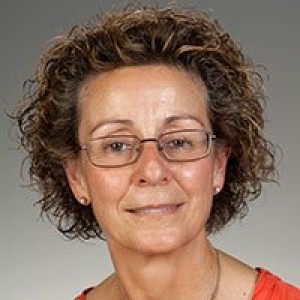
Monday Aug 05, 2019
Episode 071 - Sonsoles de Lacalle
Monday Aug 05, 2019
Monday Aug 05, 2019
- Sonsoles de Lacalle, a physician and neuroscientist, has recently taken the position of professor and Chair, Health Science, at California State University Channel Islands. She previously served as associate professor of biomedical sciences at Ohio University and Director of the Office of Advanced Studies in Ohio University’s Heritage College of Osteopathic Medicine.
- Dr. De Lacalle, a member of the Society of Catholic Scientists, holds both an MD and a PhD from the University of Navarre in Spain.
- Her research focuses on the field of aging and dementia and the effects of estrogen on brain cells. She sees her pursuit of positions in research and administrative support of research advancement as an extension of her Catholic faith. She sees herself as a “builder” of support systems bearing fruits of well-being for all through the advancement of important research.
- De Lacalle cites the Opus Dei message of building one’s relationship with the Lord and extending Christian values and virtues through one’s everyday professional work.
- She said there are signs in the world’s current culture of a strong, concerted attack against the idea of God and against the idea that we are the mere creatures of a supernatural Creator. Amid the challenges facing believers today, we can draw hope from confidence in the truth and victorious love of the Kingdom of God—we know how the story ends. Through her connection to the study of osteopathic medicine at Ohio State, she saw the value of that field’s commitment to care for the entire person and to respect each person’s inherent dignity.
- Another positive sign she has seen is a trend which may be beginning with New York University’s plan to offer free tuition to its students preparing to be doctors. It is hoped that leaving graduates unencumbered by debts could make them better able to enter certain fields of care where additional medical personnel are especially needed but remuneration is relatively low.
- Among the current research in which de Lacalle wants to spread the word about crucial impacts for human well-being is the study of human physical activity and exercise—their high correlation with brain health through the production of lactic acid, which supports the brain’s executive functions in neurons.
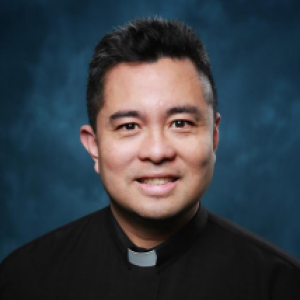
Monday Jul 29, 2019
Episode 070 - Nicanor Austriaco
Monday Jul 29, 2019
Monday Jul 29, 2019
In today's episode we sit down with Fr. Nicanor Austriaco, a Dominican friar, biologist, and bioethicist on the faculty at Providence College. Similarly to our interview with Fr. Lawrence Machia, we discuss the way in which science and a vocation to both the priesthood and life in a specific religious order intertwined in his life, with the additional perspective that his Filipino heritage contributes to his understanding of his vocation and the culture here in America.
- Rev. Nicanor Austriaco, O.P., Ph.D., is a Dominican priest and molecular biologist, on the faculty of Providence College. See his page on the college’s website.
- Cells carry a genetic program for self-death for the good of the organism. Cancer cells do not exercise this self-death. Here is one explanation of that phenomenon.
- Fr. Austriaco belongs to the Eastern Province of the Dominican Order. An early introduction within that order entails learning to remain silent, to trust in the loving presence of God. We talked about the American cultural propensity for busy-ness as a key to one’s sense of success.
- How can we think about the intersection of biological science and moral theology? Fr. Austriaco said this. Biology can help you figure out what’s good for you and what’s not good for you. We are creatures shaped by God through an evolutionary process that took place over a long time frame. Our fulfillment includes trying to understand which of our instinctual desires are perfected and which ones still have to be mastered. That’s the gist of Catholic moral theology. God calls us to joy, and that includes our fulfillment as the biological creatures we are. We must figure out what pleasures achieve the fulfillment of our nature and lead to joy. Pleasure is a grace; it can be a very good thing so long as the pleasure is ordered to our true human nature, our integral human fulfillment, what Christ calls us to.
- Is there a sense in which the Catechism of the Catholic Church is like an “owner’s manual” for the human being in living out a human life? Fr. Austriaco explained that the Gospel is a love letter from God, inviting us into friendship. The Catechism shows us the expectations that come with accepting that friendship. It’s not about what we “have to do” but what we want to do because the friendship is offering the relationship with Christ that brings us fulfillment. An “owner’s manual” concept suggests rules to follow to avoid car malfunctions, but our pursuit is more of a proactive response to God’s invitation of love and happiness. A mechanistic approach like an “owner’s manual” still suggests “I’m in charge” as an individual with a checklist—a deeply American interpretation, as Fr. Austriaco pointed out.
- Shortly after speaking at the annual conference of the Society of Catholic Scientists, Fr. Austriaco also spoke at the Vita Institute, sponsored annually by the de Nicola Center for Ethics and Culture at the University of Notre Dame as an intensive overview of Catholic pro-life principles.
- You can see Fr. Austriaco’s talk to the Society’s 2019 conference on YouTube. You’ll also find there a video of Fr. Austriaco’s 2017 lecture, “Defending Adam after Darwin.”
16:00 dogs and chocolate; biology gives us a specific perspective on what is good and bad for us.
18:00 pleasure and its purpose as well as how it leads us astray
20:00 Bill and the "owner's manual" perspective
22:00 rules secondary to relationships
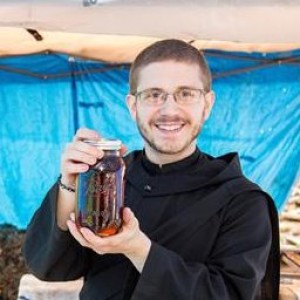
Monday Jul 15, 2019
Episode 068 - Fr. Lawrence Machia OSB and Daniel vanden Berk, part I
Monday Jul 15, 2019
Monday Jul 15, 2019
- Father Lawrence Machia, OSB, is a Benedictine monk at St. Vincent College and Archabbey in Latrobe, PA. The public can view his 2019 Society of Catholic Scientists presentation on You Tube.
- Father Machia’s talk made reference to Galileo’s letter to Benedetto Castelli.
- Dr. Daniel Vanden Berk is an associate professor of physics at St. Vincent College.
- Fr. Machia and Dr. Vanden Berk, both very interested in astronomy, have worked together on designing planetarium shows on the St. Vincent campus. They have always seen the complementarity of science and religion, faith and reason, in contrast to many people’s rejection of religion based on supposed conflicts with scientific, rational, experiential learning.
- Dr. Vanden Berk was intrigued at an early age by the “Cosmos”- series presented on PBS by Carl Sagan, but the program posited a conflict between science and faith.
- Among Dr. Vanden Berk’s astronomical adventures: working on the Sloan Digital Sky Survey. He has worked with the Fermi National Accelerator Laboratory, processing data captured by the Digital Sky Survey.
Episode timeline:
3:00 Machia's time in college, science to theology
5:00 Machia's beginning to discern a religious vocation
8:00 St. Vincent College and the archabbey
10:00 Pre-novitiate and novitiate
12:00 Vows
15:00 Why TSSM, following on from Lawrence's plans to finish and continue his physics education
16:00 Begin vanden Berk
18:00 Sci-fi influences
20:00 He and his wife's discernment process
22:00 Daniel's early career, the early Hubble mission
24:00 Sky surveys
26:00 Texas sky survey
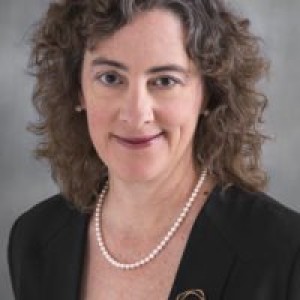
Monday Jul 08, 2019
Episode 067 - Maureen Condic, part III
Monday Jul 08, 2019
Monday Jul 08, 2019
-
The conversation involving Dr. Condic, Dr. Giesting and Schmitt turned to the complexities of the nation’s debate about abortion. That debate engages a mix of biological facts (which may or may not be probed in the full context of updated knowledge), personal experiences, and deeply held principles, positions, and emotions including authentic sympathy for the circumstances in which pregnant women find themselves. Although providing scientific insights is a crucial advancement of the debate because people deserve to have comprehensive information, the laying out of certain biological facts alone will not necessarily change minds, Condic said.
-
In many cases, much of the public presentation of the abortion controversy dividing people is manufactured, but there is room for honest discussion on particular grounds. We each can play a part in adding to human understandings in this controversy. People evolve their judgments on the wide scope of the debate incrementally over time.
-
But the search for a full overview is complicated; indeed, Dr. Condic referred to difficulties she and her brother Samuel Condic encountered (different vocabularies, etc.) in compiling their book Human Embryos, Human Beings. The book aims to bring together philosophical and biological insights about human life at its beginning. In short, the abortion debate requires us to spend more time in listening to each other, asking questions, probing the basis of people’s stances, and less time in simply lecturing, she said.
-
Paul talked about his experience with identical twins in his family. Twinning is a complex arena for understanding “who you are,” raising core questions with biological and philosophical implications. Our discussion around the microphone extended to research on the topics of compaction and chimeras. Condic has written a book that delves into the complexities. Untangling Twinning is scheduled for publication this summer.
-
There are also biological phenomena complicating an understanding of our human nature in sexual terms. There can be complex factors differentiating between one’s genetic sex and one’s hormonal sex, Condic said. A very small segment of the population has genetically compound sexual identities. Intersex disorders can occur in a variety of ways, although in the vast majority of cases questions of a person’s gender identity are not grounded in physical causes, Condic said. Studies in some areas raise questions within the LGBTQ community itself. Among many, endeavors focusing on a “gay gene” that would undergird a statement that “I was born this way” have been diminished by a view that gender identity is fluid or is driven by non-genetic factors.

